
REVIEW: Hirokazu Kore-eda Retrospective
There’s a term that film critics often use to describe a work that captures and magnifies some enduring characteristic of our population: the ‘human condition’. It’s an overarching term with various existential connotations, one that’s too often applied as a kind of linguistic ‘get out of jail free’ card when confronted with imagery at once familiar and incommunicable. And yet, this paradoxical term seems strangely befitting the films of Hirokazu Kore-eda.
Kore-eda, one of two Japanese directors to have been given a retrospective program at this year’s festival (the other was Shohei Imamura) seems deeply interested in those ‘innate’ human struggles. His characters are frequently caught between their past and future, attempting to overcome loss, or give in to it, or faced with reconciling their personal history with the knowledge of death. Love, grief, memory, and desire all figure as prominent tropes within his films. This somewhat unique humanistic vision is apparent in both Afterlife (1998) and Hana (2006).
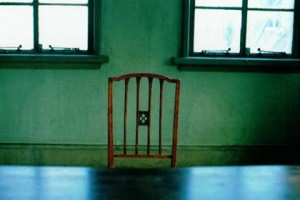 The opening moments in Afterlife establish a fairly conventional portrait of contemporary working life. Winding their way through what appears to be an old school building, two Japanese men are gossiping about a client, “all he wanted to talk about was sex”, one says while the other nods in understanding. When they arrive at their office, a man enters and congratulates them on their work the previous week, before instructing them on the job at hand. Kore-eda then cuts away as people of varying ages enter the building downstairs assembling in a waiting room.
The opening moments in Afterlife establish a fairly conventional portrait of contemporary working life. Winding their way through what appears to be an old school building, two Japanese men are gossiping about a client, “all he wanted to talk about was sex”, one says while the other nods in understanding. When they arrive at their office, a man enters and congratulates them on their work the previous week, before instructing them on the job at hand. Kore-eda then cuts away as people of varying ages enter the building downstairs assembling in a waiting room.
The scene feels so familiar in its appearance that it could be set just about anywhere. But the reality of the situation is quite the contrary. The ‘everyday’ scenes that Kore-eda has established are actually part a more unique premise. One of the men from earlier is sitting in an interview room with his assistant. An elderly lady enters the room and sits across from him behind a desk. Then, with an air of sincere formality he says to her, “you died yesterday. I’m sorry for your loss”. It’s the first of a series of beautiful surprises that Kore-eda has in store for the audience.
As we soon discover, the twenty or so ‘clients’ in this building have all passed away. Reflecting on their lives with their interviewer, they must select one memory to take with them into the ‘afterlife’ for eternity. For their part, the organisers will reconstruct the memory, film it, and then screen it to each of the deceased, before they move forever into the beyond.
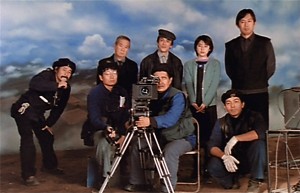 But the real key to Afterlife’s success is less the premise than the performers; the characters, their stories, and their struggle to select a single moment from a life now lived. Kore-eda frames each of the deceased as they recall their memories with a rarely seen honesty and warmth. Shot in isolation, the interview sequences have a distinct ‘documentary’ feel to them (not suprising given Kore-eda emerged from this field), allowing the establishment of a bond between actor and audience.
But the real key to Afterlife’s success is less the premise than the performers; the characters, their stories, and their struggle to select a single moment from a life now lived. Kore-eda frames each of the deceased as they recall their memories with a rarely seen honesty and warmth. Shot in isolation, the interview sequences have a distinct ‘documentary’ feel to them (not suprising given Kore-eda emerged from this field), allowing the establishment of a bond between actor and audience.
But where Kore-eda’s film is truly commendable is the way that it gradually redraws the boundaries between the interviewers and the deceased. As the days pass Kore-eda changes his shot structure, drawing both interviewer and client into the frame at the same time. It’s a clever technique because it allows us to identify with both parties, and gain a sense of the effect this has upon the workers as they usher through the dead. There’s an emotional depth to this film that is both powerful and understated: the work of a highly talented filmmaker.
In Hana, Kore-eda takes the personal investigations of Afterlife and repositions them in a distinctly political context. Once again, the set-up appears fairly conventional; 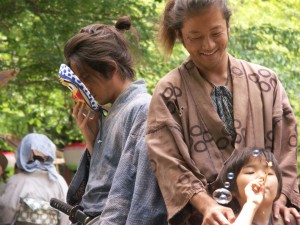 a samurai has been entrusted with the task of avenging his father’s death. Living out of tiny room in the overcrowded slum on the outskirts of the city, and surrounded by a rag-tag bunch of inhabitants, Soza (Junichi Okada) maintains the pretence of his search for the man responsible.
a samurai has been entrusted with the task of avenging his father’s death. Living out of tiny room in the overcrowded slum on the outskirts of the city, and surrounded by a rag-tag bunch of inhabitants, Soza (Junichi Okada) maintains the pretence of his search for the man responsible.
The only problem is Soza is a lousy warrior. He prefers education to violence, and rather than train his weapon skills he’s set up a make-shift schoolroom teaching people to read and write. But in the face of mounting pressure from family and fellow warriors – ‘why haven’t you completed your dying father’s wish?’ – Soza is confronted with a difficult choice; sacrifice himself with ‘honour’ or move on with his life?
The ‘revenge’ narrative has long been a dominant trope of the samurai film, from Japan (the Baby Cart series) to America (the revisionist Kill Bill films), but Kore-eda isn’t interested in a simple blood-for-blood narrative. Instead he uses the generic frame of the samurai tale, and the historical context of the ‘47 Ronin’ incident, (in which a group of ex-samurai avenged their master’s death before committing ritual suicide) to question the morality of the revenge.
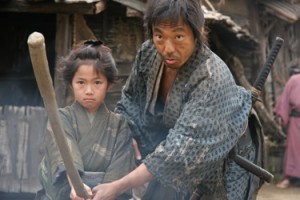 It’s here within this artistic/political framework that the film resonates most strongly with contemporary issues such as the American response to 9/11 (for which Kore-eda admits was as an influence). In Hana revenge is more than a matter of honour, as one resident points out, “it’s good for business”. This sly capitalist critique aside, Kore-eda’s film seems intent on examining the usefulness of the samurai code in an age of rapid cultural change. And Soza perfectly embodies the struggles inherent in Japan’s transition from the Edo to the Meiji era.
It’s here within this artistic/political framework that the film resonates most strongly with contemporary issues such as the American response to 9/11 (for which Kore-eda admits was as an influence). In Hana revenge is more than a matter of honour, as one resident points out, “it’s good for business”. This sly capitalist critique aside, Kore-eda’s film seems intent on examining the usefulness of the samurai code in an age of rapid cultural change. And Soza perfectly embodies the struggles inherent in Japan’s transition from the Edo to the Meiji era.
At its heart though, Hana is less concerned with allegorising contemporary politics than it is interested in the struggles faced by its down-and-out characters. Once again, Kore-eda gleans some excellent performances from the cast, balancing moments of humour with pathos to good effect. For instance, when Soza discovers his neighbour attempting to commit seppuku (ritual suicide), but failing because he’s using bamboo, the effect is at once amusing and pitiful. Pathetic as some of his characters may be, Kore-eda’s real skill is in making us empathise with them in spite of their shortcomings.
One Response to “REVIEW: Hirokazu Kore-eda Retrospective”
RSS feed for comments on this post. TrackBack URI


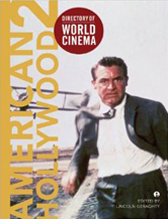


This was a good review, thank you! I’ve linked your work in my article about the film: https://alkony.enerla.net/english/the-nexus/sf-f-nexus/film-review/wandafuru-raifu-after-life-movie-1998-film-review-by-kadmon